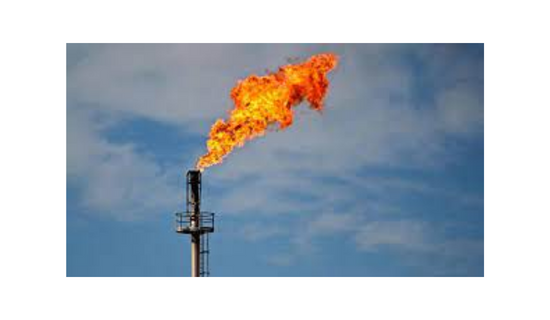The Energy Institute’s 72nd edition of the ‘Statistical Review of World Energy 2023’ said the amount was lost from 2012 to 2022.
A breakdown of the statistics showed that upstream and downstream oil and gas firms operating in the country flared the highest amount of gas in 2012, estimated at 12.9 billion cubic metres of natural gas, 9.2 billion cubic metres in 2013, 8.3 billion in 2014, and 7.5 billion cubic metres in 2015.
The flare kept decreasing as the year rolled by, with 7.2 billion cubic metres flared in 2016. Flaring again, rose to 7.5 billion cubic metres in 2017, before plummeting to 7.3 billion cubic metres in 2018, and then rose to 7.8 billion cubic metres in 2019.
The menace dropped significantly to 7 billion cubic metres in 2020, dropping further to 6.5 billion cubic metres in 2021, before resting at 5.3 billion cubic metres in 2022.
Summation of gas flared by the country in the 10 years under review gives us an estimated 86.5 billion cubic metres.
According to the Hebrew Energy; value for each 1 billion cubic metres of natural gas is worth about $183m, giving an estimated $16tn lost to the menace within the period under review.
The government through former president Muhammadu Buhari had in 2020 pledged support to the United Nations 2050 zero gas emission agenda. Buhari however, said Nigeria would put a final stop to gas emission latest by 2060.
In line with the drive to end gas emission, the Nigerian Upstream Petroleum Regulatory Commission in October, said FG had granted 42 firms gas flaring licenses in the 2022 Nigerian Gas Flare Commercialisation Programme auction process.
The Commission also said that 38 of the companies have been awarded 40 flare sites for standalone single flare site development, while four are awarded nine sites to be developed as clusters.
As a form of penalty for gas flaring, NOSDRA said oil companies were liable to fines totaling $25.3m in July, an equivalent of N19.4bn going by the Central Bank of Nigeria’s current official exchange rate of N768.77/$.
Chief Executive, the Nigerian Upstream Regulatory Petroleum Commission, Engr Gbenga Komolafe, said, “The wasteful disposal of natural gas is not only fraught with deleterious health/ environmental consequences but also a major source of resource waste and value erosion to the country.”
According to him, the Nigerian Gas Flare Commercialisation Programme will attract investments, and develop a transparent market mechanism through a competitive procurement process for allocating gas flares, under clear and transparent criteria to competent third-party investors using proven technologies in commercial applications globally.

























